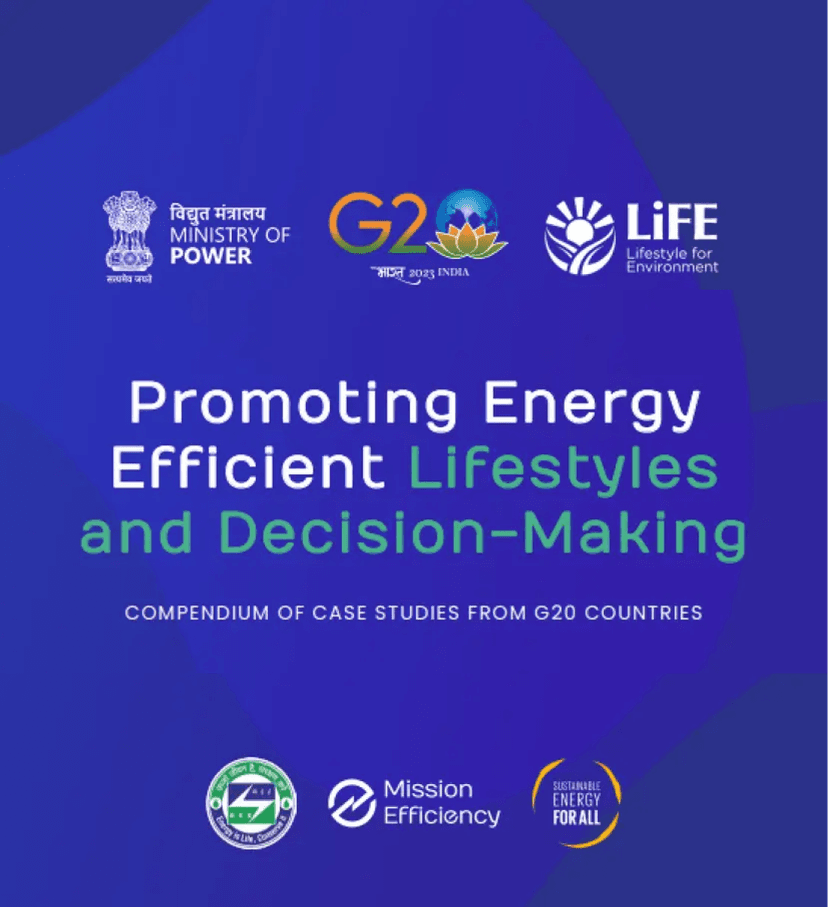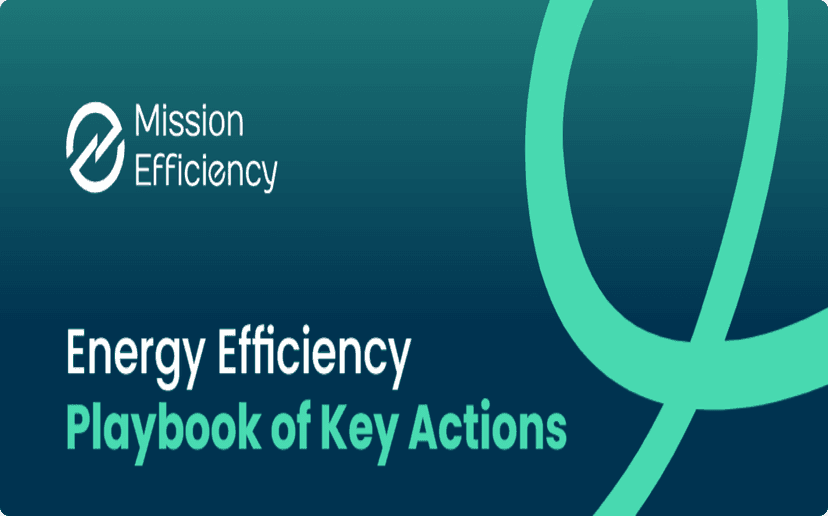We use cookies on this site to enhance your user experience.
By clicking the Accept button, you agree to us doing so.


Help the planet, help your wallet!
Check out the easy energy efficiency actions below.
1
Replacing old fluorescent and incandescent lighting with LED systems improve light quality and reduce heat gains. LEDs efficiency is up to 90% higher than incandescent lighting and 60% more efficient compared to fluorescent lighting.
2
Although some eco-cycles are typically longer than standard cycles, they save energy and water. Many modern washing machines use technologies to ensure clothes are clean without extra water or heat and modern laundry detergents work just as well at low temperatures.
3
Improve insulation by replacing single-pane windows with double pane windows, consider other elements to increase efficiency such as the frame materials, glass features, gas fills and spacers.
4
Efficient dishwashers and modern detergents are designed to remove food without pre-rinsing. Running your dishwasher can save energy, water and time compared to doing the dishes by hand.
5
Replacing your old refrigerator can help you save 60% of electricity consumption at home and up to 80% in your business, while also having more climate friendly refrigerants.
6
Modern and efficient refrigerators have improved compressors, refrigerants, and insulation. There is no need to change the temperatures during hot days, efficient refrigerators are designed to preserve food the longest
7
Programmable and adaptive smart thermostats can improve comfort and save energy by turning the heat or cooling off when they are not needed
8
(e.g., 5 Star, A+, ENERGY STAR, LEED Platinum or equivalent). Energy savings can help make mortgage payments while having improve comfort in your new home.
9
(e.g. BEE STAR, A+++, Energy STAR, FIDE). Efficient air conditioners, televisions, fans, dishwashers, washing machines, refrigerators and other electronic devices can improve comfort and save money.
10
Simple or complex energy audits can help identify energy efficiency opportunities. At home, you can do your own home energy assessment, while some utilities or governments offer free or low-cost professional energy audits
11
At home, in school or the office, sensors can save between 15-30% on energy costs for lighting
12
Smart meters allow you to measure your energy consumption and send this information to your energy supplier. This means that you will have more accurate bills and helps you understand and manage your energy consumption.
13
In business, schools, households and in vehicles, reflective paint can reduce up to 98% of the sun’s heat on your roof, walls and other surfaces. This reduces the need for air conditioners and improves thermal comfort.
14
More insulation can improve comfort and reduce energy bills. If you are updating your heating and cooling systems start by improving insulation first to reduce the size and cost of the system
15
Power management systems switch off appliances and equipment when they are not in use
16
Repairing leaks and identifying damaged components ensures the system is working efficiently.
17
Increase your thermal comfort and reduce energy use by controlling the direct sun through windows by opening and closing shades or curtains. External shades provide excellent reduction of direct solar gain, while internal curtains can act as an insulation barrier and shade to keep heat in during the winter and keep the heat out in the summer
18
Heat pumps used for heating and cooling, reduce household’s exposure to price changes of fossil fuels and are three to five times more energy efficient than natural gas boilers. Tip: Do not forget to improve insulation before
19
Check the appropriate pressure of your tyres periodically to ensure that under inflated tyres are not increasing your fuel consumption or posing safety concerns.
20
This includes not using roof racks in your car when you don’t need them, as they and other car attachments can increases drag and fuel consumption.
Using less services to use less energy and is often a behavioral change. Examples of energy conservation includes turning the light off, even if light is needed, or by dimming the lights below the lighting lumens needed for the productive use or need for illumination.
Having the energy service you need without additional energy, typically by design. Examples include using natural daylight instead of an electrical light and turning the lights off when you don’t need them.
Gaining more service (or productive use) from the same amount of energy. Examples include providing more lumens of light with the same amount of energy.
Energy that is climate friendly and long term viable (sustainable) from renewable resources, ideally from multiple sources that can support hourly and seasonal variation in energy demand. Examples include small- or large-scale biofuels, geothermal, hydro, solar and wind energy sources
Using less energy for the same service, typically by design. Examples include having a lightbulb that uses less energy to provide the same light service & having sensors and smart switches that turn the light off when you don’t need additional light.
The term multiple benefits aims to capture a reality that is often overlooked: investment in energy efficiency can provide many different benefits to many different stakeholders.
Access to Energy
Energy efficiency can increase the services delivered by each kilowatt of electricity and improve energy access
Air Quality
Energy efficiency can reduce both indoor and outdoor concentrations of air pollutants.
Asset Values
Energy efficiency can increase asset values for homeowners, businesses and utilities
Economic Benefits
Cost-effective energy efficiency improvements can have positive macroeconomic impacts, boosting economic activity
Emissions Savings
Energy efficiency reduces GHG emissions, both direct emissions from fossil fuel, and indirect emissions from electricity generation.
Employment
Energy efficiency can induce job creation, improve productivity and decreases employee absenteeism.
Energy Prices
Energy efficiency can lower energy prices by reducing the need to add new power generation or transmission capacity and by reducing pressure on energy resources.
Energy Savings
Energy efficiency reduces the amount of energy used to provide a service.
Energy Security
Energy efficiency can reduce the reliance on energy imports and reduce the risks of supply interruptions.
Health and Wellbeing
Energy efficiency supports physical and mental health with healthy temperatures, humidity, noise, and air quality.
Household Savings
Energy efficiency can enable higher disposable income by lowering energy bills and other households costs.
Productivity
Energy efficiency leads to productivity gains by lowering maintenance issues and optimising processes.
Reduce energy expenses and deliver over 40% of the Paris Agreement

Energy efficiency can be done today

Energy efficiency investment brings local jobs and local benefits

Energy efficiency policy and technology solutions are available

Energy efficiency brings social, economic and health benefits

Energy efficiency can deliver over 40% of the Paris Agreement

Energy efficiency can cost-effectively support net-zero by 2030

An innovative initiative designed to empower individuals to make energy-efficient choices and drive grassroots change. The campaign understands the power of language and emotions. While traditional climate messaging often relies on fear-inducing terms that can lead to inaction, this initiative focuses on the benefits and positive emotions of an Energy Efficient Life.
Energy efficiency, unlike energy supply infrastructure, comes in small pieces – around the world there are millions of light fixtures, appliances, air conditioners, vehicles, cell phones, etc. It thus takes millions of choices by individuals and businesses to increase energy efficiency. The good news is that by harnessing the power of emotions that motivate individuals, countries and businesses, major shifts can occur.

To increase the diversity of voices shaping energy-efficient solutions, driving both individual action and positive policy change.
To create engaging digital content such as, videos, interview, infographics and more, highlighting the benefits and real-life experiences of energy efficient lifestyles.
To encourage youth to develop and share innovative energy- efficient solutions, scaling the most effective ideas to unlock the energy efficiency potential.
We invite you to join our movement and embrace three key principles for an Energy Efficient Life:
1. Recognize the power of energy efficiency:
2. Take Action:
3. Inspire Others:



This Compendium highlights how impactful messaging and compelling narratives can harness positive emotions to embrace energy-efficient lifestyles and inspire countries and organizations to raise ambition on energy efficiency. The Compendium is developed by the Bureau of Energy Efficiency, Ministry of Power, Government of India, in partnership with Sustainable Energy for All (SEforALL) and Mission Efficiency.

Use this Energy Efficiency Playbook of Key Actions to either draft your Mission Efficiency Pledge or Energy Compact, or simply guide your overall energy efficiency efforts. Select all applicable actions and add any additional specificity for your expected actions. Further, add any custom actions beyond the list of key actions.
We invite you to send new actions to add to this playbook to [email protected]


Energy efficiency may not be visible, but it has power.

A targeted campaign that combines the power of emotions and reason, empowering decision-makers to unlock the power of energy efficiency. We create compelling messages focusing on the power of energy efficiency to: